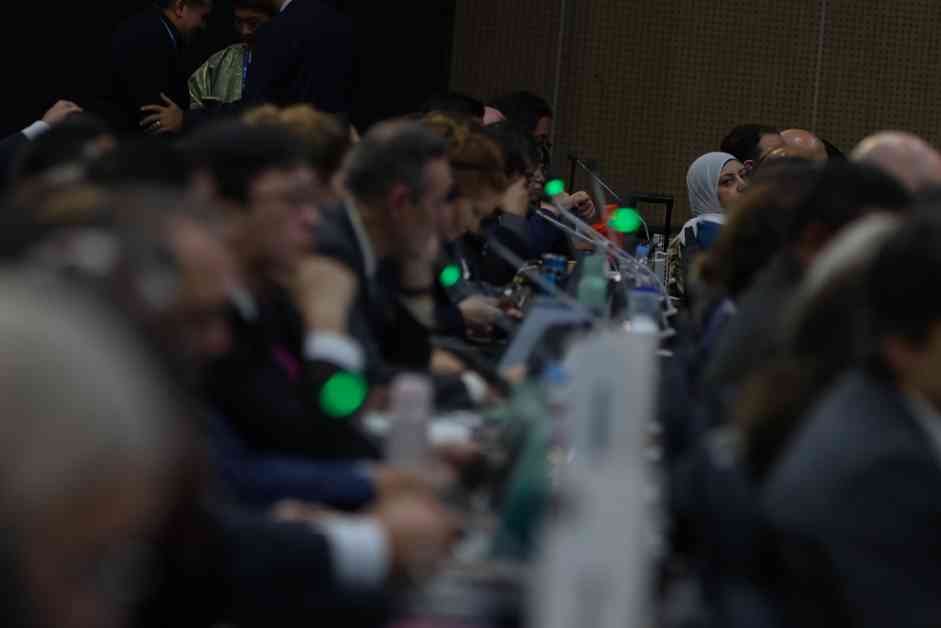Global Plastics Pact Negotiations Fail to Reach Agreement
Countries worldwide were left at an impasse regarding a new treaty aimed at addressing plastic pollution, as discussions in Busan, South Korea, failed to produce a consensus. Despite a push from over 100 developed and developing nations to limit plastic production, oil-rich states like Saudi Arabia, Russia, Kuwait, and Iran resisted, insisting that the focus should only be on consumption and recycling.
Stalemate in Negotiations
The talks, which were expected to conclude with a global UN pact to combat plastic pollution, extended into overtime without a breakthrough. Diplomats struggled to find common ground on crucial issues, resulting in a draft treaty text riddled with disagreements and unresolved matters. Luis Vayas Valdivieso, the chair of the negotiations, had to release a new document on the final day, but it did little to bridge the divide among the parties involved.
High Ambition Coalition
During the discussions, the High Ambition Coalition (HAC) showcased their support for ambitious treaty proposals, calling for a reduction in plastic production to sustainable levels. Members of the coalition, including countries from Africa, Latin America, the Pacific, and various developed nations, stood in solidarity for their cause, emphasizing the urgent need for binding provisions to phase out harmful plastic products and chemicals.
Industry Resistance and Environmental Concerns
On the opposing side, countries like Saudi Arabia, Russia, and India raised objections to production restrictions, citing economic considerations and the importance of plastic in societal development. The plastic and petrochemical industries, viewed by some as having undue influence on the negotiations, were criticized for hindering progress in addressing plastic pollution.
The delay in reaching an agreement was met with disappointment from environmental advocates, who warned of dire consequences for communities affected by plastic pollution. With the fate of the treaty hanging in the balance, the role of countries like China in bridging the gap between competing interests became increasingly crucial.
As the negotiations remain unresolved, the global community faces a pressing challenge in curbing plastic production to mitigate the climate crisis and protect the environment for future generations. The need for a balanced and pragmatic approach that addresses the entire life cycle of plastics is paramount in achieving a comprehensive and effective agreement.














